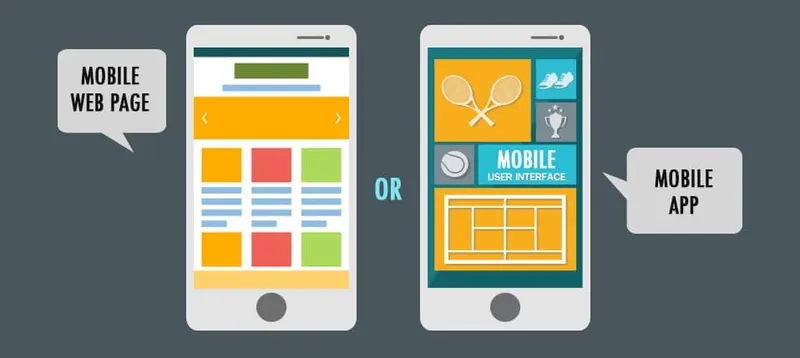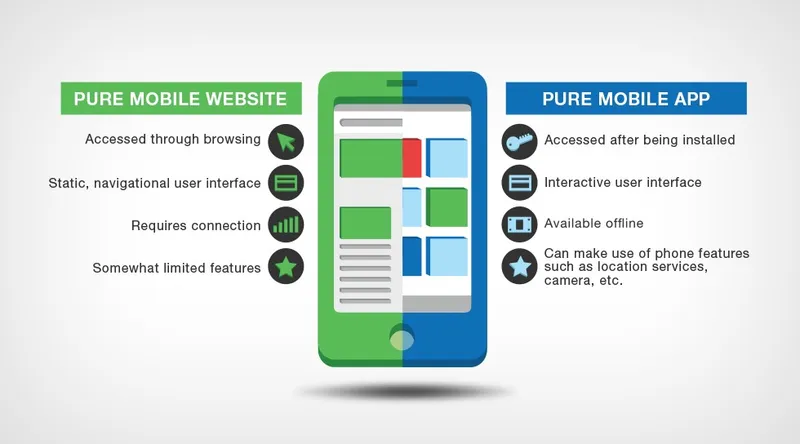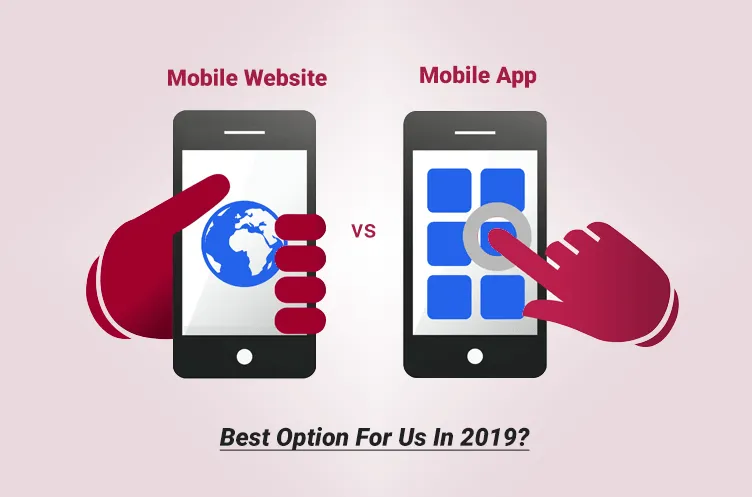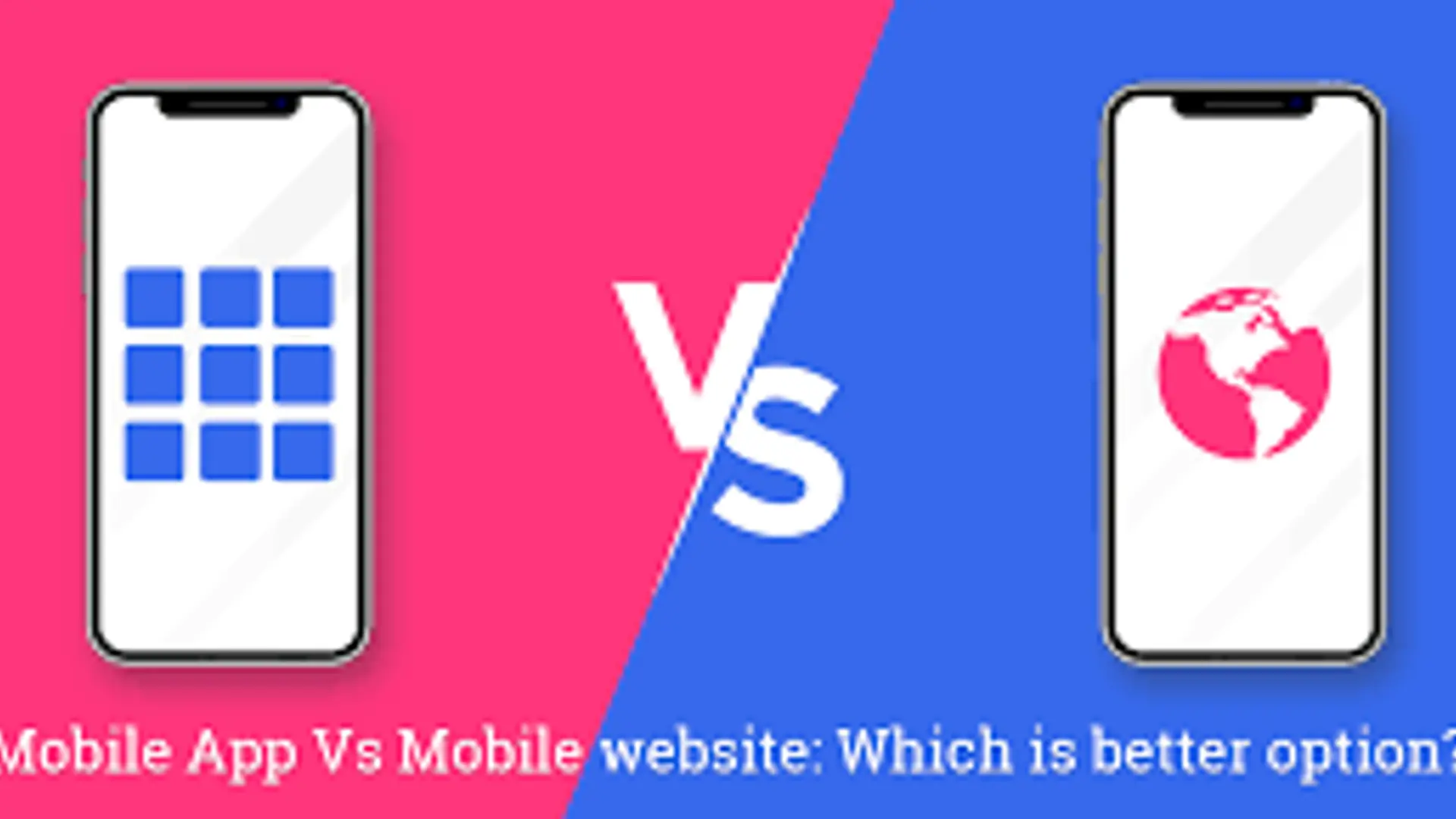
This is a user generated content for MyStory, a YourStory initiative to enable its community to contribute and have their voices heard. The views and writings here reflect that of the author and not of YourStory.

Mobile App Vs. Mobile Website: Which Is A Better Option?

This is a user generated content for MyStory, a YourStory initiative to enable its community to contribute and have their voices heard. The views and writings here reflect that of the author and not of YourStory.

Choosing Between A Mobile App Vs. A Mobile Website
Going by the massive increase in the number of mobile app users in the past few years, it is pretty clear that businesses across the globe must adopt a mobile strategy. Today the desktop-only internet users have been overtaken by mobile-only internet users, and not just this, but app usage has also surpassed the desktop usage. Resultantly, this shift has made businesses to re-think their mobile strategies.
Now the big question that they are posed with is whether they should go with a mobile app or a mobile website.

Some believe that a mobile app is not required and just having a website that looks good on mobile devices is good, others believe that mobile apps have many benefits that cannot be offered by a website. However, upon digging deeper, there are various factors that should be considered before you make the final decision. As it comes to the different mobile mediums, determining where to put in the efforts is tough. Hence, here we present the pros and cons of each choice and this way a mobile strategy that suits your business goals and objectives can be aligned.
Benefits Of Having A Mobile Website For Your Business

Mobile websites are websites with a responsive design and they work for different screen sizes. Mainly, it is a customized version of a regular website particularly used for mobile.
Its benefits consist of:
1. SEO And Brand Visibility
Nowadays mobile-optimized sites are ranked higher in the search engine result pages as compared to the websites that are not optimized for mobile. Firms that have mobile-friendly websites are likely to rank better and this results in larger brand visibility and higher website traffic. These might be a less expensive option, but then they are also limited when it comes to engagement and personalization.
2. Cost-Effective
Based on the complexity, a responsive mobile website is more cost-effective compared to mobile app development. This is especially true in case you desire your mobile app to have a presence on more than one platform.
3. Wider Audience Reach
With mobile websites, they are accessible across the platforms and they can be shared easily. Next, when it comes to the search engines, its reach capacity is greater than a mobile application that needs to be searched and installed in Apple’s App Store or Google Play.
Not just this, but mobile websites also make it difficult for users to navigate, as they are on a lot smaller screen as compared to a desktop. Thus, you would need to ensure that the user has fewer steps to take, because if you fail at simplifying the user’s journey, then users will get irritated and may end up abandoning the website. This won’t just lower the conversion rates but will damage the brand image as well. Hence, ensure that the web site's functionality is optimized on the mobile devices, and ensure that the user journey is made very simple and smooth.
Benefits Of Having A Mobile App For Your Business
Mobile apps are usually developed for a specific platform, like for Android or iOS, and they get installed on the device itself. In the case of native mobile apps, they are written in the language of the operating system of the device. These apps are an entirely separate entity from a company’s website and they are often an extension of the brands. So, let’s discuss here the advantages of owning a mobile app for your business.
1. Customer Engagement
The mobile apps function with their interface environment and this way, users can be way more engrossed in the mobile experience. Usually, the apps are created with a purpose, such as hassle-free banking. Thus, they address the user pain points, making it easier for them to attain an objective. At the same time, mobile apps offer more interactive ways for users to engage with your content. Instead of looking at the same text & images as a website, apps can rather integrate the features which allow the users to interact with certain app components. Ultimately, if a mobile app succeeds in delivering a great deal of value to a user, they are certain to return frequently, forming a habit. All of these factors contribute to greater customer engagement, thus boosting the conversion rates.
Related Blog: How Much Does It Cost To Develop A Mobile App?
2. Offline Access
Yes, mobile apps can run even without an internet connection. Even though many apps need an internet connection to execute many of the tasks, they can still offer content and functionality to the users when in the offline mode. This way, information can be accessed by the users anywhere, anytime.
3. Leveraging Device Capabilities
In the case of native mobile apps, they can interface with the device’s features and hardware, like GPS location, camera, and so on. Having access to a device’s capabilities is mainly crucial for the retail mobile apps since they considerably enhance Customer Experience, and the fact that customer experience is important can’t be denied. This Cisco survey reinforces this as it suggests that context and hyper-relevance is the crucial way to win over digital customers. Hence, mobile apps are the ultimate means to enhance the Customer Experience as they act as an extension of a retailer’s brand, and they offer features that are not possible elsewhere, such as:
- Camera
- Push Notifications
- Tap-to-call/email
- Device alerts/vibration
- Instant & Automatic Updates
In contrast, mobile websites are quite limited as it comes to accessing the device’s features. They can use some features of mobile devices, such as GPS, camera, etc. but still there are various technological constraints in using them.
- Personalization- Well, personalization is all about offering personalized communication to users based on their location, interests, usage behavior, and a lot more. Mobile apps are a great means for offering the users the same kind of experience as they allow users to set their preferences when they originally download the mobile app and then customize it to suit their requirements. User engagement can also be easily tracked by the app and they offer customized updates & recommendations to users. Mobile apps can also identify users’ location to provide the geography-specific content, like special promotions/deals at a specific store.
- Branding-Mobile apps come many new branding opportunities for users as they are a separate entity from a company’s website. This allows businesses to experiment with the new branding tactics and styles with the help of a mobile app. Keep note of the fact that mobile apps bring an entirely different experience to the user. Hence, if your website fails at offering enough value for your customers, a mobile app can be quite beneficial as it offers the users another channel to engage.
In the case of the mobile apps, they are built with the mobile experience in mind, instead of being redesigned from a particular website. Today consumers expect smooth experience across the platforms and greater brand consistency. Not just this but around 83% of the mobile users have said that seamless experience is pivotal for them.
Which Option Should You Pick?

When you have to decide between building a mobile app development or a mobile website , making the best choice entirely depends on your business goals. If the goal is offering mobile-friendly content to wide-ranging people, then a mobile website is what you require. However, in case you are keen on engaging, interacting and communicating better with your customers to drive customer loyalty, then mobile apps tend to be the apt choice. There are also cases where you might require both the mobile app and a mobile website and if you do it correctly, then both can be a valuable and strategic choice. Hence, ultimately the choice depends on the requirement and objectives of your business.



